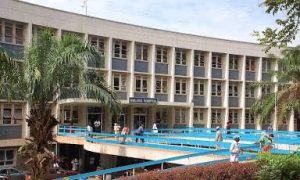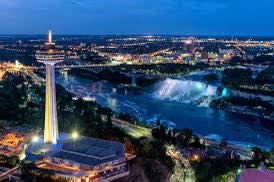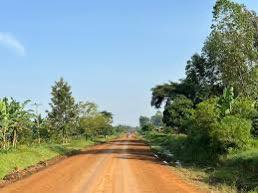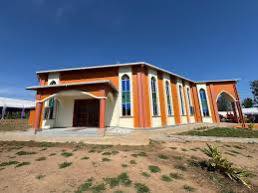#OutToLunch No African country should be land locked
By Denis Jjuuko
There has been at least some good news this side of the world. Uganda’s oil is finally set to get out of the ground following the signing of the Final Investment Decision (FID) agreement in Kampala with partners committing to US$10 billion. Procurement of goods and services can now commence. There is a lot that has been pegged to this industry over the last many years and I hope that it realizes its potential and unlike many Ugandan projects, it is delivered on time.
There was also the little issue of Rwanda opening its border with Uganda, which has been closed for at least three years. Many Ugandan businesses trade with Rwanda and the reopening of the border is good for both countries and the region. Although I am not sure what was the real reason for the closure, it is good that people can be able to move from one country to another again.Africa is home to 1.4 billion people, the same population as China but there are so many non-tariff barriers in place that hinder doing business. A spat between leaders of countries affects the entire region.
Requirements for visas and work permits for countries that all belong to the African Union is a mockery of the body itself. Many times, Africans fly to other countries outside Africa where visas aren’t required or the process isn’t stringent than doing business with the continent. It is easier for a Ugandan to get a visa to Dubai or Turkey than to South Africa. So Africans take their money away from the continent because of such restrictions.
Flying in Africa is one of the most expensive in the world and when you look at the air ticket, the biggest percentage of the cost for the ticket goes to taxes. Why do African countries make it so hard to fly from one part of the continent to another? Is it the mentality that flying is for the rich? I know the numbers of people flying might be low but then again isn’t it an issue of cost? If we make flying affordable, people will be able to fly and conduct business with one another.
Kenya and Uganda usually squabble over whose goods are contravening regulations in another country. Quality is usually given as an issue though behind the curtain, the argument always goes back to who is benefiting from these barriers.
There is always talk of about some of these African countries being land locked and how that curtails their economic progress. In the case of countries like Uganda, that shouldn’t be the case. Mombasa is just about 1,000km away from the Ugandan border and about 1,400km from Dar es Salam. That distance is so little to make a country like Uganda land locked. Investments in infrastructure and reductions in barriers that stop us from trading with each other would make almost no country in Africa land locked or lack a market in the hinterland.
Just last month, procedures at the border in Malaba and Busia created an unimaginable fuel crisis in Uganda which will affect the economy for some time. Fuel prices are still high. Most of the tankers coming to Uganda and the region load the fuel a few kilometres away from the Uganda border. Why should they go through border clearance when they arrive at Malaba?
Ugandan authorities can ensure that everything the trucker needs is done at the point of loading the fuel and then simply scan or measure at the border and trucks proceed. And this can be done automatically, so trucks don’t have to stop unless if there is a major reason that authorities should check for.
Truckers carrying abnormal loads spend a few days at Malaba or Mutukula waiting for the clearance by the minister of transport before they access Ugandan roads. I believe that the construction of the oil pipeline and the central processing facilities will see a lot of importation of equipment and parts that transporters call abnormal loads and if they are all to be cleared by a minister in Kampala, this will delay the oil projects. The country has banked so much on oil that any delays will affect the delivery of the project.
We can remove the barriers and make all countries in Africa trade with each other, access the seas and create meaningful jobs.
The writer is a communication and visibility consultant. djjuuko@gmail.com









